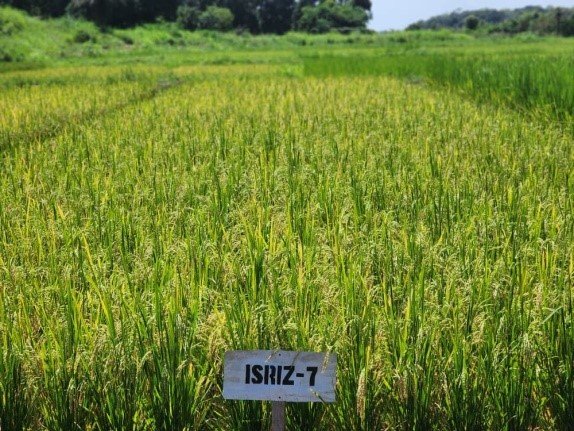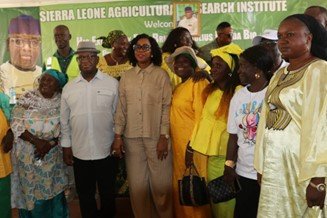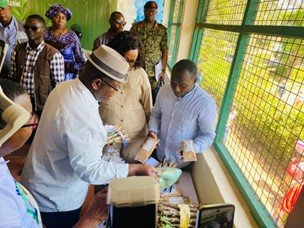In a landmark event for the nation’s agricultural sector, His Excellency President Dr. Julius Maada Bio today officially unveiled thirty new, improved varieties of maize, rice, and cassava, heralding a new dawn for Sierra Leone’s quest for food self-sufficiency. The ceremony, held at the Rokupr Research Center.
This historic release is a cornerstone of the government’s ambitious Feed Salone Programme, a comprehensive plan designed to transform agriculture and achieve national food sovereignty. The event brought together a diverse gathering of farmers, researchers, development partners, and community leaders, all of whom praised the government’s significant investment in homegrown research and innovation.

The newly released crop varieties, developed by the Sierra Leone Agricultural Research Institute (SLARI) through years of dedicated research and field trials, promise to radically boost farm productivity. Among the most notable are high-yielding rice strains capable of producing between seven and eight tons per hectare, a dramatic leap from the current national average of two to three tons. This increase alone has the potential to reshape the nation’s food production landscape.
In his keynote address, President Bio described the release as both a scientific breakthrough and a tangible demonstration of his government’s unwavering commitment to empowering farmers and strengthening national food systems. “The release of these new varieties marks a turning point in our Feed Salone vision. Through research and innovation, we are giving farmers access to seeds that will increase yields, enhance resilience, and ensure food security,” the President stated. He firmly emphasized that the path to agricultural transformation must be anchored in science, declaring, “Agriculture is a science.”

The Minister of Agriculture and Food Security, Dr. Henry Musa Kpaka, reaffirmed the government’s commitment to ensuring these improved seeds reach farmers in every corner of the country. He highlighted that this achievement directly fulfills Pillar Two of the Feed Salone agenda, which focuses on strengthening the national seed and input systems. The widespread adoption of these varieties, he noted, is expected to boost productivity significantly, increase farmer incomes, and reduce the nation’s reliance on costly food imports.

The Director General of SLARI, Dr. Abdulai Conteh, took the opportunity to thank President Bio for his leadership in revitalizing the research institute, which he revealed was on the brink of collapse before recent interventions. With support from new donor-funded projects, SLARI has restored its strong research capacity. Dr. Conteh detailed that the new crop varieties are not only high-yielding but also climate-resilient, pest-tolerant, nutrient-rich, and adaptable to various agro-ecological zones across Sierra Leone.
In a special tribute to the President’s leadership in food security, a new cassava variety was officially named “Maada Cassava.”
Following the formal ceremony, President Bio, accompanied by the Minister of Agriculture and the SLARI Director General, toured the demonstration plots to observe the impressive performance of the new varieties firsthand.




